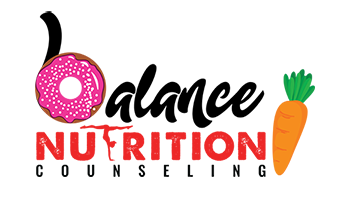When someone is struggling with an eating disorder, friends and family that are able and willing to provide support can be a helpful extension of the treatment team and an important part of that person’s recovery. Eating disorders are a complex mental health disorder and sometimes it may feel like a daunting task to be a support person in recovery. If someone you love is struggling with an eating disorder and you want to support them, check out the tips below.
Make time to fill your “cup.”
Supporting a loved one with an eating disorder requires physical, mental and emotional energy. If you are not taking time to “fill your cup”, burn out can happen easily. Be sure to fuel yourself with regular meals and snacks throughout the day, make time to get adequate sleep, and consider working with a therapist to support your own mental health needs. Remember, you can’t pour into your loved one’s cup if your cup is empty.
Increase your knowledge of eating disorders.
Unfortunately, there are still a lot of misconceptions about eating disorders out there. Ask your loved one’s therapist, doctor, or dietitian for resources to help you learn as much as you can. Increasing your knowledge of your loved one’s eating disorder can help you be more understanding and empathetic toward your loved one as you support them in recovery.
Be aware of body talk.
Whether body talk is positive or negative, about your own body, or about a total stranger’s body, it can be a trigger for someone struggling with an eating disorder. Usually, your loved one’s eating disorder will take comments about body as an opportunity to play the comparison game, which can increase urges to use eating disorder behaviors with food or exercise. Cutting out body talk can be difficult in the appearance-obsessed culture we live in, but talking about other subjects of real value will be a very helpful support to your loved one.
Be aware of how you talk about food.
It is very common to hear food described as “good” or “bad”, “healthy” or “unhealthy”, “clean” or “unclean.” These ways of describing food can lead to an All or Nothing mentality or a moralizing of food. For example, if I eat a food deemed “good,” I feel good about myself and I am good. But if I eat a food deemed “bad,” I feel bad about myself and I am bad. This can reinforce harmful beliefs that make it difficult to develop a healthy relationship with food and body. So try viewing food as just food, and keep talk about food neutral. An apple is an apple. A piece of cake is a piece of cake. If you are describing a food, stick to words that describe sensory characteristics, like a red apple or a piece of vanilla cake.
Encourage specialized help and support.
Eating disorders can cause serious health issues and having the right treatment team is very important for recovery. If you are supporting a loved one with an eating disorder, stress the importance of finding a physician, therapist, and dietitian with eating disorder experience. If you need help finding eating disorder specialists in your area, contact National Eating Disorders Association (NEDA) at (800) 931-2237 or go to their website at https://www.nationaleatingdisorders.org/help-support/contact-helpline.
Below are some recommended books and websites that can help you understand eating disorders and how to be a good support to your loved one.
Websites:
https://www.eatingdisorderhope.com
https://www.nationaleatingdisorders.org
Books:
Sick Enough: A Guide to the Medical Complications of Eating Disorders by Jennifer Gaudiani, MD, CEDS, FAED
Surviving an Eating Disorder: Strategies for Families and Friends by Michele Siegel, Ph.D., Judith Brisman, Ph.D., Margo Weinshel, M.S.W.
More Than A Body by Lindsay Kite, PhD and Lexie Kite, PhD
How to Nourish Your Child Through an Eating Disorder by Casey Crosbie, RD, CSSD and Wendy Sterling, MS, RD, CSSD
Body Kindness by Rebecca Scritchfield, RDN
Written by Julie Mason, RDN, LDN



